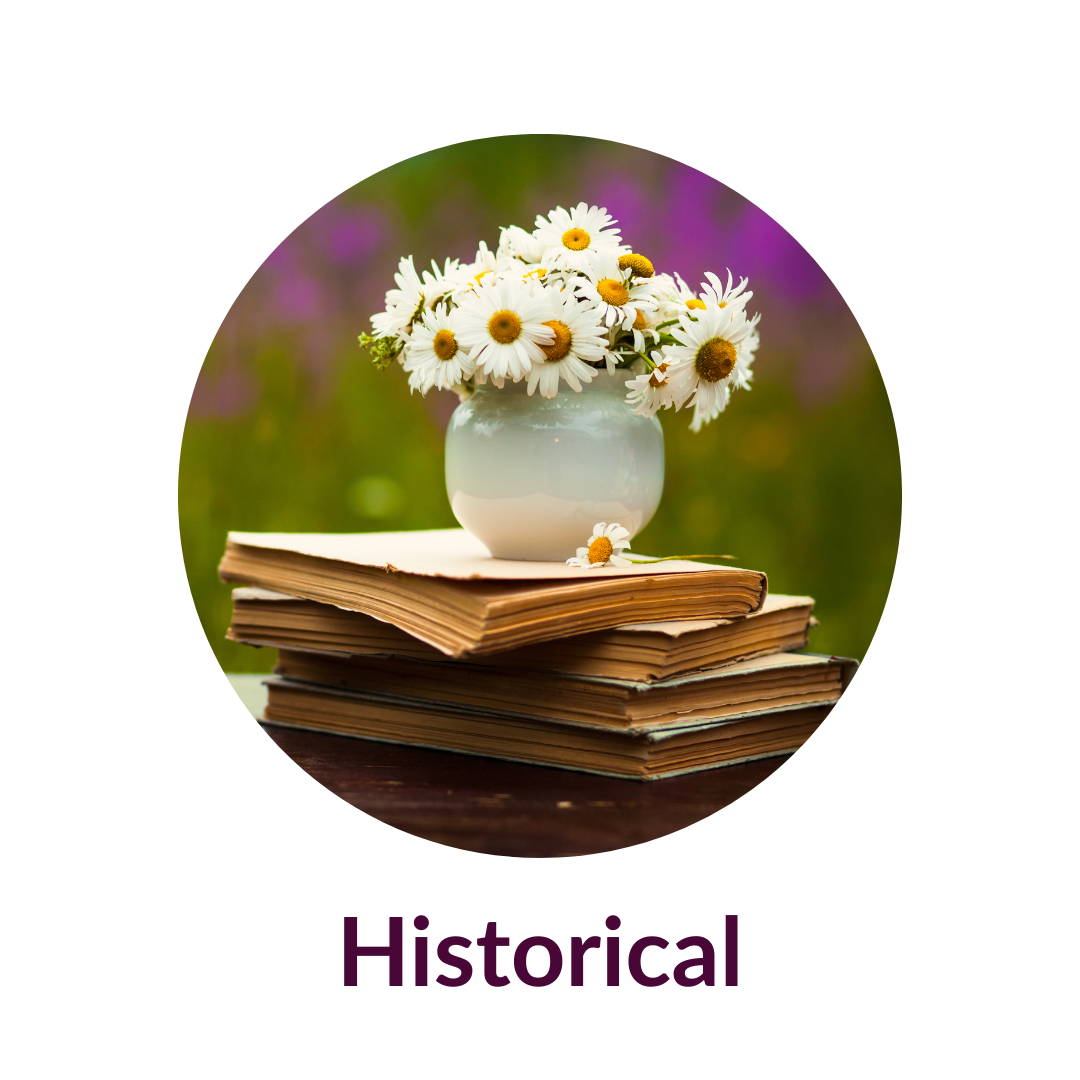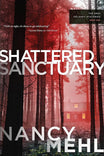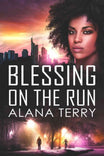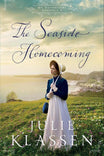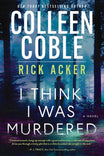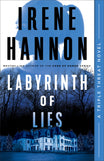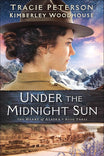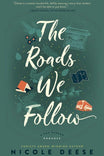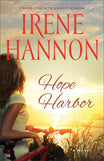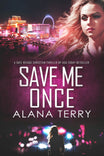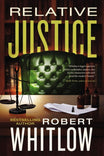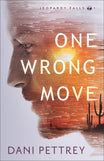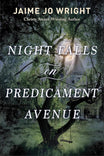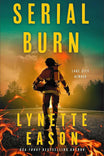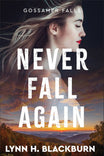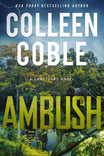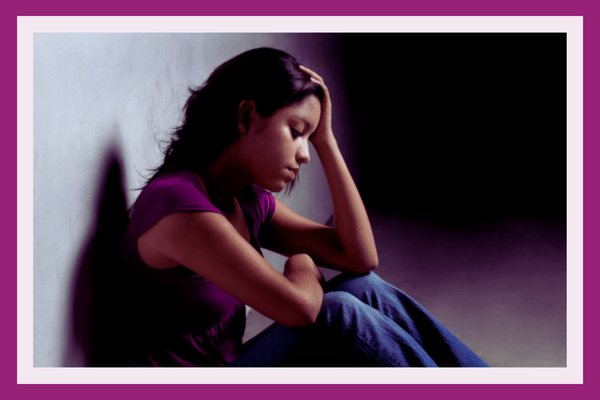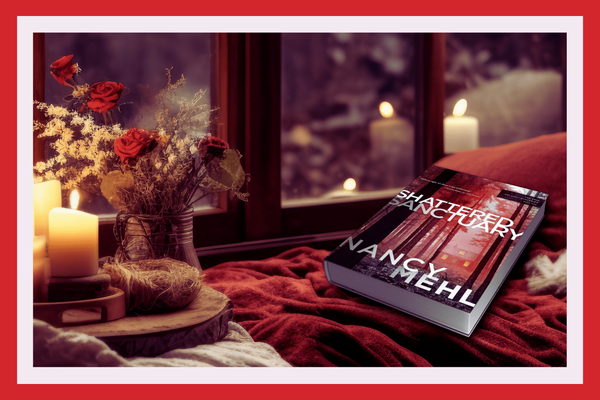Here Comes Joy by Sandi Ellis:
Read Chapter 1 Now!

Read Chapter 1 of This Masterful Memoir by Sandi Ellis
Sponsored Post:
Here Comes Joy is the true story of a girl who grew up in the cracks of hard soil, learning to thrive where few thought she could survive.
Born in South Gate, California in 1973, she was raised in a family marked by betrayal, addiction, and deep wounds passed down through generations. When her father walked out and her mother was left to raise four children alone, shame and abandonment took root. Yet even in the harshest conditions, God was planting seeds of hope—through the presence of a faithful pastor, the love of unlikely friends, and the quiet voice of the Holy Spirit that would not let her go.
Fans of inspirational memoirs, Christian testimony, and stories of resilience will be deeply moved by this moving account of finding identity and healing in Christ. If you’ve ever wondered whether God can make beauty bloom in the most broken places, this book belongs on your reading list.
Read the opening chapter of Here Comes Joy and step into a journey of hardship, healing, and the God who never abandons His children.
Here Comes Joy by Sandi Ellis
Chapter One ...
Street Flower
“Do not despise these small beginnings, for the Lord rejoices to see the work begin.” (Zechariah 4:10)
Past the salty California coast, through sunbaked streets, beyond the Hollywood Hills and south of downtown Los Angeles, you will find a tightly packed, working-class neighborhood called South Gate. Here, kids walk the worn sidewalks to school, passing mural-covered concrete walls. Chain-link fences border small stucco homes—usually rented by the occupants. Inside those homes are families of all kinds—broken, blended, happy, dysfunctional, sad, beautiful families.
Some are chasing the American dream. Others didn’t know there was a dream to chase to begin with. Most are surviving, and those who are thriving usually find a way out. It was a safe, all-American city in the 1960s, and even when I was born in June of 1973, it was a respectable community. By 1980, the Firestone plant and General Motors, and half a dozen other major factories shut down, leaving the South Gate economy in pieces. As the economy went down, crime went up. It was no longer the quaint, cozy neighborhood that many once knew, but a sketchy shell of what it used to be.
This was the soil I started in.
We all begin our lives planted in something. For some, it’s a nutrient-rich environment, fed by the love of godly parents and the outstretched arms of a prosperous community. For others, the soil leaves much to be desired. To truly flourish in South Gate, you almost felt like a pavement plant—growing up through the cracks of the sidewalk, defying the odds, and blooming in a harsh setting. The kind of plants that push through city sidewalks aren’t delicate roses or well-tended garden flowers. They’re tough, strong, and stubbornly alive.
They don’t get the luxury of careful watering or shade from the sun—but somehow, they find a way. Urban plants don’t bloom because conditions are perfect. They bloom because it’s in their nature to reach for the light—even when the opening is small. And maybe that’s what it meant to grow up here: learning to push through, to stretch toward something greater, to find strength in struggle. Sometimes, the most beautiful things aren’t the ones planted in perfect conditions, but the ones that rise where no one thought they could.
The truth is, I was born into a quickly changing world. Just five months before I came along, Roe v. Wade was decided, making abortion legal throughout America. My mother, despite her struggles, chose life—and for that, I am forever grateful, knowing the alternative would have been easy. She herself grew up in Lynwood, which sits between South Gate and Compton. Born in the middle of the 20th century, she was shaped by serious dysfunction in the household she was born into.
Her father—my grandpa George—was a World War II veteran who stormed the beaches of Normandy. After the war, ready to settle down, he married my grandmother, Mercy. They started their young lives together in Oregon before moving to California, where they had my mom and her brother.
George opened a mechanic shop and worked hard while Mercy took a clerical job. They had their hands full building a life and needed help with the children. As a result, they decided to hire a babysitter—which was fine until the day Mercy came home from work and found George in bed with her.
Utterly devastated, Mercy ran out of the house—without the children—and simply did not come back. For my mom, this was a defining moment. She had her life before this event, and her life after—and they were two very different realities. She was left behind with an unfaithful father who, hardened by war, did not have the emotional capacity to nurture her and her baby brother. It was a rigid, emotionally distant, survival-based upbringing.
As the years wore on, Mercy met a man named Ray and remarried, eventually returning to California to reclaim her children. By then, though, years of absence made for a cold welcome home. My mother was angry and, along with her brother, refused to go with their mother. Mercy did remain in contact with them, but the maternal bond was shattered, by no fault of the children. Thus, my mother was raised in a home without a mother’s warmth.
In the same town, around the same time, my father, Bobby McGuire, was going through abandonment in his own unique way. His father—William McGuire, also known as Chief Wah-Nee-Ota—was a man of contradictions. He was a Creek Nation chief, a traveling musician, and a Hollywood actor, appearing alongside figures like Eleanor Roosevelt and advising on films like Flaming Star with Elvis Presley. He had charisma, talent, connections, and a name that carried weight.
But he also had secrets. The main one being a second family. Growing up, my father and his sister Nadine believed their family was just like any other. Sure, Dad would travel for work, but don’t all dads? Their naïveté ended when they met a group of children at school with the same last name. The McGuire kids all looked at each other, all having similar features and the same name, and one asked, “Who’s your dad?”
“William McGuire. Chief Wah-Nee-Ota.”
My father’s stomach must have dropped.
That’s our dad, too.
That night, they ran home and told their mother, Judy, the news. Furious, she marched across town and found William at another woman’s house—surrounded by half a dozen children that he had secretly sired. A second family, a double life. After being confronted with his massive web of deception, my grandfather made a choice. He left my father and Nadine behind and stayed with the other family from then on out.
From that moment on, my father grew up without a dad. And the mother he was left with was not the comforting, maternal type, to say the least. In truth, she was an alcoholic—and not the quiet, sad kind of alcoholic, but a raging one. She was a woman hardened by life, by abandonment, by wounds that had never healed. Verbal and physical abuse were the norm during her drunken tirades. I would say my father never truly recovered from it. Emotionally, he was stuck at age 10, frozen in an era of trauma.
As he grew up, he was relentlessly bullied in school. Even worse, after meeting my mom in high school, one of his tormenters was my mother’s brother. The pattern of abuse seemed to follow him wherever he went. Nevertheless, my parents fell in love before they were old enough to buy a lottery ticket. They were two broken kids who probably thought they could make each other whole.
My dad was tall and handsome, with kind eyes and a dark complexion. Like my mother, he too had a playful, childlike sense of humor. They moved in together, fresh out of high school, and had me no more than a year later. At the time, a very small percentage of children were born out of wedlock, and I happened to be one. It was something I had to heal from after many years—the feeling of illegitimacy.
Shop from our affiliate link!
When you’re born out of wedlock, it can write a subconscious message in your heart that says: I wasn’t supposed to be here. That internal narrative can be incredibly damaging if it’s left unchecked. Inner healing has allowed me to reframe that, which we will discover later in the book.
My parents wasted no time multiplying. My older brother Justin was almost a year old when I was born, Rachel showed up a year after me, and Margie came along a year after her. My dad worked blue-collar jobs while my mother stayed home with us, getting by on limited means, yet doing the best they could. My early memories are hazy, but I recall a feeling from the top down that “children should be seen and not heard,” which meant I often stayed in the background of any scene. It’s worth noting that I realize no one ever taught my parents how to be parents. There was no manual handed to them, no course on how to raise children with emotional safety and connection. They simply repeated what they knew—what had been modeled for them. Their parents were just trying to survive, fortunate if they could keep food on the table. So, it's no wonder that nurturing, emotional attunement, or gentle correction weren't part of the equation.
Understanding this gives me a healthy perspective. They were barely more than kids themselves, trying to raise four of their own straight out of high school. They did the best they could with the tools they had. And while their best sometimes fell short, I can now see the weight they were carrying. Hindsight brings compassion. While my dad labored from paycheck to paycheck, he did have a bright spot in his life: music. He could make a guitar speak. He played in bars, on worship teams, anywhere that would have him. He had stories about playing with The Carpenters, rubbing shoulders with musicians who had made it, though he never made it big himself.
He had talent without stability, a gift without direction.
He and I were close when I was little. I was the one who resembled him most. While my siblings had my mother’s German-European features, Justin and I had his. In my innocence, I never registered his sense of abandonment, nor did I consider the possibility that he would perpetuate that painful cycle. I was just five years old when the news came down from my mom after multiple inquiries.
“Your dad has left, and he isn’t coming back.”
No explanation. No reasons were given, no goodbyes were exchanged. He just left. I wouldn’t crawl into his lap anymore, and I would no longer hear his guitar in the other room. I wouldn’t giggle at his jokes anymore. Age five should have been the wonderful start of building early, lasting memories with my dad. Instead, it became the funeral of my childhood.
I have a vivid memory of seeing him again very briefly, probably when he came to pick up a few of his things. I recall scowling at him, my small way of expressing the hurt and confusion I didn’t know how to articulate. I failed to understand that he was not leaving me, but leaving my mom. As a child, you take it all personally, and I certainly did. It felt like he was abandoning me, not just physically but emotionally.
Children internalize everything. They see their parents as superheroes, so if something goes wrong, they assume it’s their own fault. A child’s logic says: if Superman avoids me, it’s not because he is doing something wrong; it’s because I am bad.
The split between my parents was difficult enough—but the silence that followed was its own kind of wound. When my dad left, it unknowingly planted a belief deep in my heart: that all men would always leave. Over time, that quiet lie began to weave itself through every relationship I had. What was once a single, painful event slowly became a lens through which I saw the world—shaping the way I viewed love, trust, and especially the presence of significant men in my life.
Sometimes I wonder how much healing might have come from just a few simple words: “It’s not your fault.” Or perhaps someone gently telling me, “It’s OK to feel sad or angry. Your feelings matter—you’re allowed to express them.” Words like those could have offered something solid to stand on—something larger than the pain that felt so overwhelming at the time. In the absence of that kind of reassurance, kids are left to make sense of things on their own—and too often, it’s shame that fills in the silence.
What started as a fairly typical South Gate childhood gradually became something heavier, marked by the ache of abandonment passed down through generations. The soil I was planted in—already difficult—grew even tougher to take root in.
Looking back now, I can only imagine how scared and heartbroken my mother must have been—suddenly alone, with four children to raise. She was barely more than a child herself, just out of high school, doing her best to carry the weight of something so much bigger than she’d ever prepared for. This must have substantiated deeper abandonment wounds for my mom—validating fears that she may have carried long before my father ever left. And just like me, perhaps she, too, was left filling in the blanks, without anyone to remind her: “It’s not your fault. You’re allowed to feel. You’re not alone.”
Shop from our affiliate link!
“Hey, you guys OK? Where are you heading?”
“Oh, just walking to school,” we’d say to the officers.
“Ok, just be safe. Here, take a couple baseball cards.”
These types of interactions with local police were normal as we’d walk 6 blocks to Bryson Elementary, or later nearly two miles to the high school—rain or shine. Some kids were lucky enough to be dropped off, but my two feet were my vehicle for most of my childhood.
Confidence doesn’t materialize out of thin air and just hit you one day—it’s instilled by parents, leaders, teachers, or mentors. For me as a young child, with a young mother who was trying to survive with four children, I had yet to get that instillation. In school, I was shy and awkward, clinging to my mom’s leg the first day of preschool, riddled with separation anxiety as the administrator physically pried me away from her.
Eventually, I settled into the routine, but by no means became an extrovert. I favored subjects like science and history, but would check out during the others. At home, television became an escape for me, a window into a world that felt safer and more comforting than my own. I loved watching Little House on the Prairie and The Waltons. If I had to retroactively analyze myself, I would say I was drawn to a picture of happy families, kind parents, warm homes with a strong father figure, and a sense of belonging. On the other hand, I also loved The Twilight Zone reruns. Just maybe I was comforted by seeing a reality that was even more backwards and wonky than my own.
When school was out for the year, we’d pass our summers in the community pool. South Gate offered yearly passes, and we would splash and play until our fingers pruned. We would run around the large park and rec center, causing trouble and making friends—or attending the occasional Dodgers game with the Lyn-Gate church group. Sometimes we would have a potluck at the beach, and the church would perform baptisms.
Even at a young age, I noticed I had a foot in two worlds. I had my standard neighborhood friends, and I had my church friends. Stephanie Flack lived in an apartment behind our house, and I would often walk across the alleyway to hang out with her. She was about a year older and incredibly worldly in my eyes. She didn’t have the typical Christian household, and her family’s perspective fascinated me. She introduced me to cable TV—something we initially lacked at home—and we’d spend hours watching MTV and Madonna music videos. Through her, I was being schooled in life outside the church bubble.
On the other hand, I had my church friends and church activities. Names like Cynthia Manous and Tommy Garcia come to mind. With Tommy, our moms were friends, and the families would get together for camping and outings now and then. Like my own, his family didn’t have it all together, but he remained optimistic, funny, and loyal.
Cynthia lived near the church, where my family spent so much of our time. She wasn’t a regular churchgoer, but would come to events like VBS or some of the outings the church put together. We clicked almost instantly after meeting. Cynthia was everything I thought a young woman should be: intelligent, elegant, and confident. She carried herself with a kind of poise that made you want to sit up straighter just standing near her. Even my mom noticed it, jokingly calling her "Lady Di," comparing her to Princess Diana.
She had this vast vocabulary, which felt so impressive, and a way of carrying herself that was so refined. I looked at her and thought, This is the kind of woman I want to be. She had a big family like I did, but hers seemed healthier, more functional. Even when Cynthia moved on—first to UCLA and later to the Glendale area—we stayed in touch. The truth is, during those formative childhood years, I was looking for models. Children are natural mimics, absorbing behaviors, attitudes, and emotional cues from those around them. For those who grow up in unstable environments, the need to find a model becomes even more urgent. Psychologists call it observational learning. In stable homes, kids naturally model after their parents. But in chaotic or unpredictable environments, they’ll look outward—toward teachers, older friends, or even fictional characters—to find templates for how to exist in the world.
For me, it meant forming friendships across different backgrounds, finding pieces of who I wanted to be in a patchwork of people. Some were kind and steady, showing me what warmth and encouragement looked like. Others had a toughness that, in a place like South Gate, seemed like the only way to get by. My upbringing taught me how to connect with all kinds of people—rich or poor, outgoing or reserved, Christian or secular. Growing up in a big family and spending so much time with cross-cultural friends teaches you to navigate different personalities. That skill can become a superpower in adulthood—walking into a room and feeling comfortable engaging with anyone there, regardless of status or demeanor.
One of the models I clung to early on was Wonder Woman, who was the epitome of everything I admired and longed for. Sure, I liked Hasselhoff on Knight Rider or Laura Ingalls—but Wonder Woman had it all. Beauty, confidence, strength. She always saved the day, and to a young girl who felt powerless much of the time, that was incredibly inspiring.
As for my real-life heroes, I didn’t have to look further than the pulpit on Sunday morning, where Pastor Paul Bradshaw delivered his sermons, prayed for the sick, and prophesied over us. He truly displayed the heart of the Father. For all of my upbringing in California, we attended Lyn-Gate Neighborhood Church, which Pastor Paul and his wife Kathy, had recently joined after our former pastor stepped down. The church is still standing and holding regular services, sitting on the border of Lynwood and South Gate, in the heart of the inner city. It has since expanded to more cities in California as well as Mexico and other nations. The mission statement: We are a Christ-centered Acts 1:8 family of churches carrying on Christ's mission through church planting, Spanish ministry, Immigration Services, Urban Ministry, and Missions. Pastor Paul is still there at the helm, hair now grey with time, preaching week-in and week-out, approaching half a century of faithfully serving. My sister Rachel still attends and is active in the church. When I go back to California, I try to visit, even if it’s only every couple of years. That church, with Pastor Paul at the helm, left an incredible mark on me.
Even as a child, I could see that Pastor Paul was a good and just man. He was a tall man of Irish descent with light brown hair and an air of quiet strength about him. He was not afraid to speak his mind, but he always did so with kindness and wisdom. He was a fatherly figure in many ways, and shepherded our family with care. It was evident that he poured his life into his calling. He wasn’t just a figurehead at church; he was in the mix of our family’s life. From officiating our weddings to showing up at the drop of a hat during tragedy, he embodied the full meaning of the word pastor. Knowing that most families in the area had limited means, he never asked for anything in return—literally. Whether it was weddings, funerals, or counseling, they always served selflessly without asking for a dime. The miracles of God were always evident in Pastor Paul’s life, and there was always plenty of fruit to show.
On one occasion, when I was around eight, we attended VBS at the church. Justin and I were playing when he started chasing me, and I darted across the street—knowing I had been told not to cross the street under any circumstances. Just as I reached the other side, a car pulled up and a man got out, clearly intending to grab me. Pastor Paul, who had seen it all happen, was already on his way over. The moment the man saw him coming, the fear of God must’ve hit—he jumped back in his car and sped off. That was the kind of neighborhood we grew up in, and that moment became one of many where I recognized the divine hand of God protecting me through, and Pastor Paul’s critical role in our family life.
It’s almost as though his impact on me is being felt just as much now as it was then. There are situations I find myself in where a decision needs to be made, and I reflect on something he would have said or done. The truth is, advice or input that’s full of hot air doesn’t last and dies in the ear of the listener. However, the word of God shared well acts like a perennial flower, growing up fresh year after year in perpetuity. I’m blessed to see the long-term fruit of what Pastor Paul and Kathy sowed.
The church community as a whole offered glimpses of stability in a world that often felt chaotic. We occasionally went to the beach as a congregation with baptisms and food. Our family also went to Christian camps—places like Canyon Meadows and Rolling J Ranch through Lyn-Gate Church. It broke up the routine and gave us a taste of community in a fresh way. I looked forward to these camping trips.
But even during those moments of joy, there was an undercurrent of confusion and disconnection that I couldn’t quite shake as a kid. I somehow could not picture myself as an adult. My mind was fragmented and disconnected from any bigger picture or grandiose dream.
Fragmentation and disconnection became a childhood theme. My mother sent me to Arkansas during the summer when I was a child. I’m not sure how many times I visited, because I had completely blocked out the entire memory—except for one lone fragment: sitting in the back of a convertible car, eating ice cream. There was one summer trip in particular that always felt... off. I was around five years old, visiting my grandfather. The memory is cloudy, but there was a distinct heaviness—a sense that something had happened that didn’t make sense. For years, I pushed it away, unable to understand why that visit left my spirit shattered in pieces.
What I didn't know then—and would only learn decades later—is that when a child experiences trauma that overwhelms their capacity to process it, part of their emotional development can freeze in time. According to Christian psychologists like Dr. Henry Cloud and Dr. John Townsend, unprocessed pain often causes people to become stuck at the developmental age when the trauma occurred. I didn’t just forget what happened—I lost pieces of myself in that season. My growth in certain areas stalled, even as I matured chronologically. I would catch brief flashes of memory here and there, but nothing I could make sense of.
Then, as an adult in my fifties, God began to reveal more—bits and pieces through visions—until I finally understood why I had fragmented so deeply before I ever left kindergarten. A part of the little girl inside me had become emotionally and spiritually locked in a cage, buried deep in my subconscious. She would not be let out until I was half a century old.
Growing up in rough soil teaches you a lot about survival. It also leaves you clinging to a deep longing for stability and truth. When words don’t line up with actions, when security feels like an illusion, you start to develop something like a sixth sense. That detector was Holy Spirit-given in part, but it was also forged through necessity.
As a child, the chaos I lived in pushed me to escape in the only way I knew how—daydreaming. I created a world in my head where things made sense, where families were loving, stable, and safe. My daydreams became a way to reclaim a sense of power, identity, and safety. Counseling later taught me the term maladaptive daydreaming, a survival mechanism where you create a better world in your mind to cope with the painful reality. In my fantasies, I had a voice. I was strong, seen, and heard—everything I was not in my own home.
One of the memories that still sits heavy in my heart came during third grade. I didn’t have a decent pair of shoes for P.E., which took up about an hour of our school day. The only ones I had were old, tattered, and downright embarrassing. I flat-out refused to wear these beat-up hand-me-downs. The only alternative was a snug pair of flip-flops that I wore for months, simply because they were all I had.
Shop from our affiliate link!
One day during class, Mrs. Alexander pulled me aside and told me I’d need to start wearing tennis shoes if I wanted to keep participating in P.E. I went home filled with shame and hesitantly told my mom. Her response was short and final: She was unable to buy new shoes for me. That was that.
I didn’t ask again—I already knew not to.
It broke something inside me. That event spun a web of thoughts: How could I be worth so little that no one would buy me a pair of shoes? That’s when the daydreaming took over. I’d sit on the sidelines during P.E. and drift off into a world where I had everything—stylish Jordache jeans, beautiful shoes, and the kind of confidence that came from being seen and cared for. For an eight-year-old girl who felt invisible and powerless, it was more than fantasy—it was survival. My sister Rachel and I often didn’t have what we needed, but we had each other. That bond of surviving together runs deep. Even now, we send each other clothes all the time—a reminder that we see each other, and that we’ve come a long way.
The term dysregulated perfectly captures how I felt emotionally as a child. Dysregulation showed up in my inability to manage my emotions or reactions. Looking back, I can see how this was the effect of my environment—very young parents, abandonment, and a lack of communication along the way. I simply couldn’t process or release emotions in any healthy manner. If I lost in a neighborhood game, I’d take it so personally that I’d storm off and cry alone. The rejection would fall heavily upon me, and it was no longer about the game, but about the traces of abandonment in my soul. I didn’t have a safe adult to talk to or help me regulate my nervous system, so I was left to chart the course alone. And seven-year-olds simply don’t have the tools to do that.
Many kids experience moments of trauma, but when you don’t have someone to comfort and validate you during those moments, the seeds of pain take root and the effects multiply. By the time I was 10, I’d already accumulated so many triggers that I was constantly on edge. This would clinically be described as hypervigilance, which is a state of increased alertness and heightened awareness to potential threats. It's a state where you are constantly scanning your environment for dangers, even when no real threat exists. Why? Because when no one steps in to help you process the pain, your body assumes it's up to you to stay safe—at all times, in all places. Your nervous system never powers down. It learns to live in a constant state of alert, always bracing for the next blow. For me, it meant I couldn’t relax, couldn’t trust, couldn’t just be a kid. My mind was always calculating: Who’s upset? What’s about to go wrong? What can I do to avoid being the problem? Hypervigilance wasn’t just a reaction—it became my way of being in the world. I suppressed much of my hypervigilance when I could, though, which is why my dysregulation didn’t fully show up until my teenage years.
The benefit of hindsight is being able to see the patterns, the roots, the reasons. But as a child, my reality was that I had big emotions with nowhere to safely place them. My roots were searching, my petals stretching toward something brighter, something more stable, something true.
The cracks in your life’s foundation might have limited you in some ways, but they forced you to dig deep in others. A street flower doesn't have acres of nutrient-rich soil to spread its roots. It doesn’t have the luxury to sprawl far and wide. To bloom, it has to dig deep. It has to reach far below the surface, breaking through barriers that most never encounter. Its environment is harsh, the odds stacked against it, but the need to grow is greater than the obstacles.
Copyright © 2025 by Sandi Ellis
God not only healed her past, but pruned her for purpose and propelled her into promise...
Reading Here Comes Joy is like walking through cracked pavement and discovering unexpected beauty pushing through. It’s more than a Christian memoir—it’s a journey of broken beginnings, deep wounds, and the surprising grace of God that brings life where none seemed possible. Sandi's story reveals how even in abandonment, trauma, and loss, God plants seeds of hope that can bloom against all odds.
For readers who love Christian memoirs, testimonies of resilience, or inspiring true stories, this book offers a rare blend: a narrative that is both emotionally raw and spiritually life-giving. It wrestles with the realities of pain and generational struggle, yet it never lets go of the thread of redemption. In many ways, Here Comes Joy is not just one woman’s story—it’s a reflection of the universal human ache for belonging, stability, and the God who never abandons His children.
If you’re looking for your next Christian book club pick or a personal read that will leave you both challenged and encouraged, Here Comes Joy deserves a place on your shelf. It’s more than a memoir—it’s an invitation to believe that God can bring beauty out of the hardest, most unlikely soil.
Meet Sandi Ellis
Sandi Ellis is the Founder and President of Here Comes Joy Ministries.
Her ministry equips believers for their divine assignments, with joy as the natural manifestation of liberty in Christ. With a background in Biblical hermeneutics from Melodyland School of Theology, Sandi travels as an itinerant minister and hosts the Here Comes Joy television program, featured on multiple networks, while contributing to prominent platforms such as Elijah Streams, American Family Radio, and the Elijah List.

Affiliate notice: If you complete an order while shopping from one of our affiliate links, our site earns a commission (at zero extra cost to you). It's like giving us a high five for setting you up with page-turning book that’ll keep you reading all night long.
Follow us for more book recommendations!
A note about our recommendations: Our mission is to recommend Christian books that will inspire and uplift. However, we recognize that reading is a deeply personal and subjective experience. While we aim to feature books that align with Christian values, our inclusion of any book or author does not imply an endorsement of all their views, beliefs, or other works. We encourage you to be discerning and make your own informed decisions when selecting the books you read.
Christian Books Today Blog
Recent Articles
We love chatting about books, God, life, and the church! Stop on by for your newest book recommendation, Christian encouragement, and more!

Warning: This novel is NOT for the faint of heart ...
Best-selling Christian thriller
A runaway teen. A desperate mother. A relentless detective with a sordid past ...
Get your copy of SAVE ME ONCE and dive into this bestselling Christian thriller today!
Family Business
Christian Books Today is located in rural Alaska. We are a literal Mom and Pop online store, and even our teenagers and their youth pastor help with the website and order fulfillment!
Global Reach
As young adults, our goal was to serve as missionaries overseas. Because of medical issues, we never moved out of Alaska, but we love the fact that we can bring Christian books, gifts, and resources to believers around the world!
Customer service
Reach out to us any time at support@christianbooks.today. We are here for you and committed to making sure your experience with us makes you want to come back!
Satisfaction guaranteed
We know you'll be thrilled with your purchase, so every order from Christian Books Today is backed with our 30-day money-back guarantee so you can shop with absolute confidence!
Associates Disclosure: We LOVE sharing about books and resources for Christians, and we want you to know our site uses affiliate links. As an Amazon Associate, we earn from qualifying purchases. This means that we may earn a commission if you make a purchase through the links we share on this website.
Thanks for supporting our small family business!


